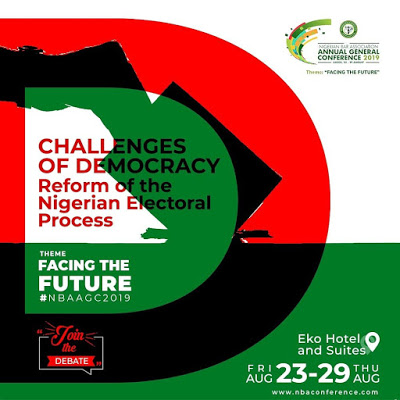
Every country operates a
form of system of governance, for example, Democracy, Oligarchy, Monarchy,
Theocracy and Autocracy. Democracy has been seen as the government of the
people, by the people and for the people. One of the numerous problems that
have worked against democracy in Nigeria is electoral malpractices.
Nigeria’s
democracy in the past was on a good platform with the existence of democratic institutions,
active civil society organizations and a good and critical mass media. But it
is necessary to mention that Nigeria this present day have been unable to
conduct and attain free and fair elections.
form of system of governance, for example, Democracy, Oligarchy, Monarchy,
Theocracy and Autocracy. Democracy has been seen as the government of the
people, by the people and for the people. One of the numerous problems that
have worked against democracy in Nigeria is electoral malpractices.
Nigeria’s
democracy in the past was on a good platform with the existence of democratic institutions,
active civil society organizations and a good and critical mass media. But it
is necessary to mention that Nigeria this present day have been unable to
conduct and attain free and fair elections.
In the contemporary world,
elections have become the most acceptable means of changing leadership in any
given political system. It is the conduct of free and fair electoral process
that justifies a government to be referred to as democratic one because the
authority of the government is derived from the citizens.
elections have become the most acceptable means of changing leadership in any
given political system. It is the conduct of free and fair electoral process
that justifies a government to be referred to as democratic one because the
authority of the government is derived from the citizens.
The integrity of the
electoral system is a major issue facing democratic governance in Nigeria.
Currently, elections in the country are held under the 2015 Electoral Act and
from the conduct of the last general election, 2019, there is a pressing need
for a reform. Thus, Electoral reform remains a pressing challenge for
democratic governance.
electoral system is a major issue facing democratic governance in Nigeria.
Currently, elections in the country are held under the 2015 Electoral Act and
from the conduct of the last general election, 2019, there is a pressing need
for a reform. Thus, Electoral reform remains a pressing challenge for
democratic governance.
Thus various questions
easily come to mind, how can the electoral process be strengthened by our
electoral laws through reform? What can Nigeria learn from other developed
nations while conducting their elections?
easily come to mind, how can the electoral process be strengthened by our
electoral laws through reform? What can Nigeria learn from other developed
nations while conducting their elections?
These questions and
challenges of achieving democracy in Nigeria through a reformed electoral
process would be discussed at the Plenary Session of the NBA Annual General
Conference scheduled to hold on;
challenges of achieving democracy in Nigeria through a reformed electoral
process would be discussed at the Plenary Session of the NBA Annual General
Conference scheduled to hold on;
Date:
Monday, 26th August 2019
Monday, 26th August 2019
Time: 15.30 – 17.00
Venue:
Pats – Ocholonu Hall, Harbour Point (Tent 2)
Pats – Ocholonu Hall, Harbour Point (Tent 2)
Speakers:
Moderator: May
Mbu-Agbamuche (Director, INEC)
Mbu-Agbamuche (Director, INEC)
Panelists: Clement Nwankwo
Dr
Onyinyechi Ikpeazu, SAN, OON
Onyinyechi Ikpeazu, SAN, OON
Jude Ilo
Prof. Adebayo
Olukoshi
Olukoshi
Dr. Isa Ali Pantami
